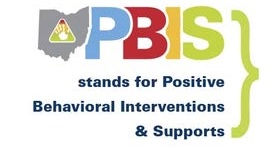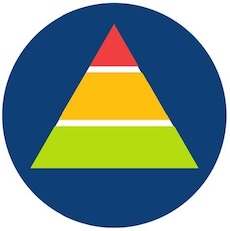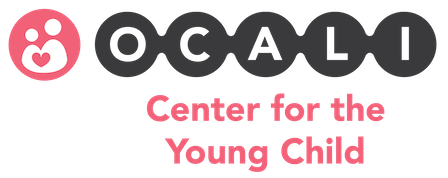The PBIS and Young Learners Series

The PBIS and Young Learners series of modules is focused on implementing the Positive Behavioral Interventions and Supports (PBIS) framework with young children in early childhood settings through third grade. These modules may be beneficial for administrators, classroom personnel, family members and other school, program or community members who are involved in, and want to support, PBIS implementation.
To learn more about Early Childhood PBIS coaching to complement module completion for a Leadership Team, contact your regional SST consultant or PbisOhio@education.ohio.gov.

PBIS in Early Childhood: An Overview
The early years are optimal times for developing social emotional skills. The implementation of EC-PBIS (Early Childhood PBIS) with children PreK through grade 3 is built on the same multi-tiered framework foundation as the school-wide system but includes unique data systems and developmentally appropriate implementation practices for early learners.
Complimentary to the PBIS and Young Learner Series are the school-age PBIS modules. The school-age modules include some considerations for early childhood and high school, whereas the Young Learner Series provides a deeper focus on specific developmentally-appropriate implementation of PBIS for young learners. The school-age modules may still be beneficial, however, if you serve on a larger building-level or district-level team with both school-age and early childhood programs or if you are an early childhood representative on a school-age team. If interested, access the school-age PBIS trainings at Ohiopbis.org.
Want to know which modules address specific TFI 2.1 elements?
Tier 1 Modules
YL-101: An Introduction to the Framework
This introductory module explains what Positive Behavioral Interventions and Supports (PBIS) is, why it is important, how it works, and considerations for implementing PBIS in early childhood.
YL-102: Setting the Stage for Success
This module is a resource for Leadership Teams as they develop a strong foundation for implementing the Positive Behavior Interventions and Supports (PBIS) framework with a focus on relationships and environment.
YL-103: Considerations for Leadership Teams
This module is a resource for Leadership Teams as they implement TFI Features 1.1 and 1.2. This includes information on building a team, developing team roles, and creating effective operating procedures.
YL-104: Developing Expectations
This module is a resource for PBIS Leadership Teams as they implement TFI Feature 1.3 including developing culturally appropriate behavioral expectations that reflect the values and beliefs of the school and community.
This module is a resource for PBIS Leadership Teams as they implement TFI Feature 1.4 including the systematic approach for explicitly teaching behavioral expectations.
This module is a resource for PBIS Leadership Teams implement TFI Feature 1.9 on how to develop a system that recognizes the positive behaviors students have learned and are demonstrating.
YL-107: Responding to Challenging Behavior
This module is a resource for PBIS Leadership Teams as they implement TFI Features 1.5, 1.6, 1.8 and 1.12 on how to develop a system to respond to challenging behavior in a developmentally appropriate manner for young children.
YL-108: Data-Based Decision-Making
This module is a resource for PBIS Leadership Teams as they implement TFI Features 1.12, 1.13, 1.4, and 1.5 on using data-based decision-making to drive the work forward, to monitor progress, and to evaluate fidelity of implementation.
Tier 2 Modules
YL-201: Are You Ready For Tier 2?
This module includes opportunities to evaluate and rate implementation progress, interact with your Action Plan, watch video-based tips for TFI features and reflect on essential components of Tier 2 planning and implementation.
YL-202: An Introduction to Tier 2
This module explains how Tier 2 fits into the PBIS tiered approach, why it is important, how it works, and considerations for implementing PBIS in early childhood.
YL-203: Building the Tier 2 Team
Learn about Tier 2 team composition, including the roles and responsibilities of team members and the key functions of the Tier 2 team. This module also defines the problem-solving processes used to make data-based decisions.
YL-204: Student Identification
Learn how to develop a process to identify children who need additional support. This module will describe the importance of using multiple sources of data in the student identification process.
Learn about identifying evidence-based interventions and how to effectively and efficiently implement Tier 2 interventions that are matched to the functions of behaviors.
YL-206: Putting It ALL Together
In this module, participants will learn how to support and monitor the implementation of PBIS Tier 2 intervention practices, review and reflect on the success of the intervention, and evaluate the Tier 2 system as a whole.
A project of

Powered by

Crosswalk of EC PBIS Modules and TFI 2.1 Elements
| Module | TFI Features |
|---|---|
| Introduction to the Framework | Information about how the content of this course walks participants through implementing the PBIS framework in a step-by-step fashion using the Tiered Fidelity Inventory, or TFI, as a guide. |
| Setting the Stage for Success | This modules falls outside the scope of the TFI but is included in the EC Classroom Implementation Tool that includes foundational information about building relationships and designing supportive environments. These topics set the stage for success when implementing the PBIS framework and are critical when building a positive climate for students, especially young learners. |
| Considerations for Leadership Teams | Information from TFI 1.1 and 1.2 on building a team, developing team roles, and creating effective operating procedures. |
| Developing Expectations | Information from TFI 1.3 on developing culturally appropriate behavioral expectations that reflect the values and beliefs of the school and community. |
| Teaching Expectations | Information from TFI 1.4 on using a systematic approach to explicitly teach behavioral expectations. |
| Acknowledgements | Information from TFI 1.9 on how to develop a system that recognizes the positive behaviors students have learned and are demonstrating. |
| Responding to Challenging Behavior | Information from TFI 1.5, 1.6, 1.8, and 1.12 on how to develop a system to respond to challenging behavior in a developmentally appropriate manner for young children. |
| Data-Based Decision-Making | Information from TFI 1.12, 1.13, 1.14, and 1.15 on using data-based decision-making to drive the work forward, to monitor progress, and to evaluate fidelity of implementation. |